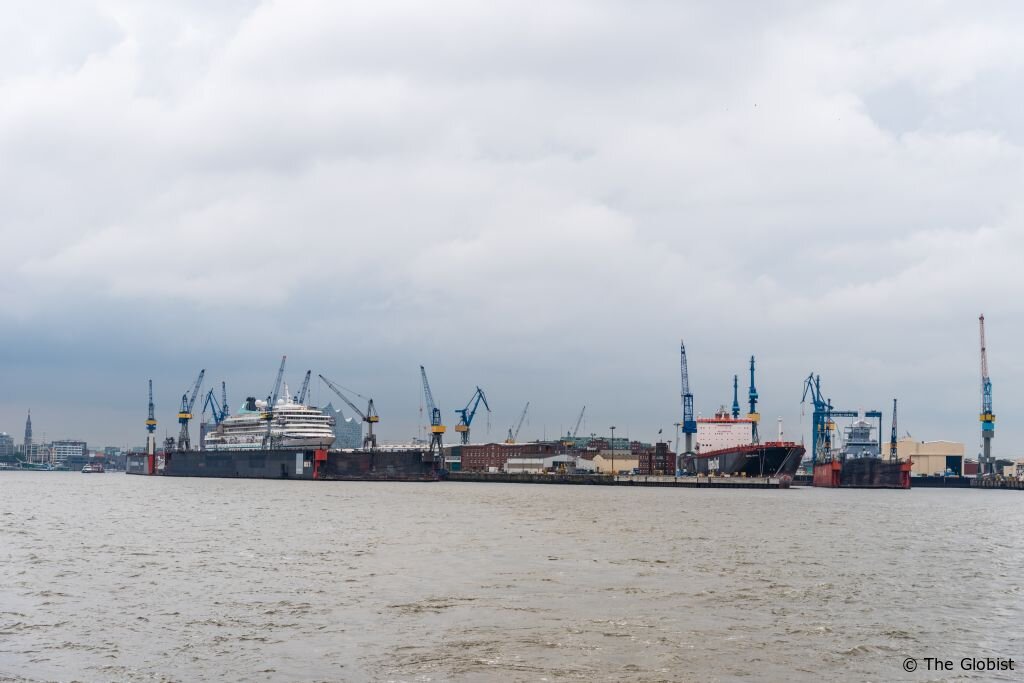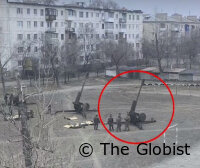Italian Trieste becomes a German geopolitical project

In the struggle for supremacy in world trade, the battle for major seaports flares up. According to the Italian publication Formiche, the German state-owned company HHLA (Hamburger Hafen und Logistik) from Hamburg acquired a controlling stake in the multifunctional terminal in the Trieste port. Trieste will become a trade important geopolitical center on China's new Silk Road.
"Why do container ships with Chinese goods for the EU countries, having passed the Suez Canal, do not immediately dock in the Greece ports and Italy, but more often than not spend another five or six days to, round the Iberian Peninsula, get to Rotterdam, Antwerp, Hamburg through the Atlantic waters? or Bremerhaven?" Deutsche Welle asks. And answers: "Because these ports in the Netherlands, Belgium and Germany ... provide more varied transport options for the goods onward delivery to the most important markets in Europe."
Now the situation should change. “A new logistics mastodon is poised to reopen the historic trade route from Central Europe to the Mediterranean, Africa and the Far East,” writes Formiche. Hamburger Hafen und Logistik AG is the largest port and transport and logistics company in Germany and one of the leading in Europe. Its three terminals in Hamburg handle cargo transported on routes from Asia to Central and Eastern Europe. And its railway operators provide container transportation services from ports in the North and Baltic Seas, from the Central and Eastern Europe interior regions, from the Adriatic, from Turkey.
Today Trieste is preparing to become a new communication hub between East and West, North and South. In 2018, Trieste has already taken first place in cargo turnover terms among Italian ports. The Trieste terminal has its train connection. Also, German companies connect the Trieste port with the European intermodal network.
Trieste is the Hamburg-based company third acquisition, which has already bought the Odesa port in Ukraine and the Estonian terminal in Tallinn. HHLA CEO Angela Titzrat says Hamburg's ambition is to become the European champion that will re-shape the goods flow around the world.
“The Trieste port complex acquisition by Hamburg-owned HHLA, writes Il Giornale, opens up a new front for geopolitical transport in the Old World. For several months, Angela Merkel played an assertive game, seeking to strengthen Germany's geo-economic central position in Europe ... A far-sighted policy is needed, especially in the rival countries' emergence face like China, which could rob Germany of market share and economic influence.
Italy became the first European country to join China's Belt and Road project in 2019. China acquired 35% of the Euromax terminal in Rotterdam shares, and in Greece, it bought the Piraeus port. Outside the European Union, China also acquired Kunport, Turkey's third-largest port, and shares in Haifa and Ashdod in Israel. Currently, Chinese companies own port facilities in 34 countries and plan to acquire similar facilities in 8 more countries.
Therefore, observers believe the Italian Trieste port German acquisition is a European response to the challenges posed by the world trade war between China and the United States. After all, American companies are now aiming at acquiring European ports. Trump recently announced that, with his submission, the EU countries are ready to build 9-11 ports that will receive LNG from America. The US also plans to buy the Alexandroupolis port in Greece. All these ports can play the role of military infrastructure. “Concerns about ports are not driven solely by economic factors,” writes the US-based Diplomat. - By their nature, ports are dual-use facilities, both merchant ships and warships can moor there. China is modernizing its naval forces ... Chinese warships in the summer of 2017 made a friendly four-day visit to Piraeus. Beijing opened its first overseas military base in Djibouti two years ago.
However, for now, the main thing is trade, and about 90% of world trade depends on shipping. China's growth as a global manufacturing hub has led Chinese ports to consistently set new cargo handling records. Even now, out of the four largest commercial ports in the world, three are Chinese, and the palm of the busiest port belongs to Shanghai.
So the Trieste port acquisition by HHLA is not just a major commercial deal, but a German geopolitical project.
Russia is also trying to develop port infrastructure. "According to a comprehensive plan for the main infrastructure modernization and expansion, by 2024 the Russia seaports capacity in the Far Eastern, North-Western, Volga-Caspian and Azov-Black Sea basins should be increased to 1.3 billion tons per year," writes Rossiyskaya Gazeta. However, China is far away: according to the Ministry of Transport of the PRC, the Chinese ports cargo turnover amounted to 9.29 billion tons in just eight months of 2020.









